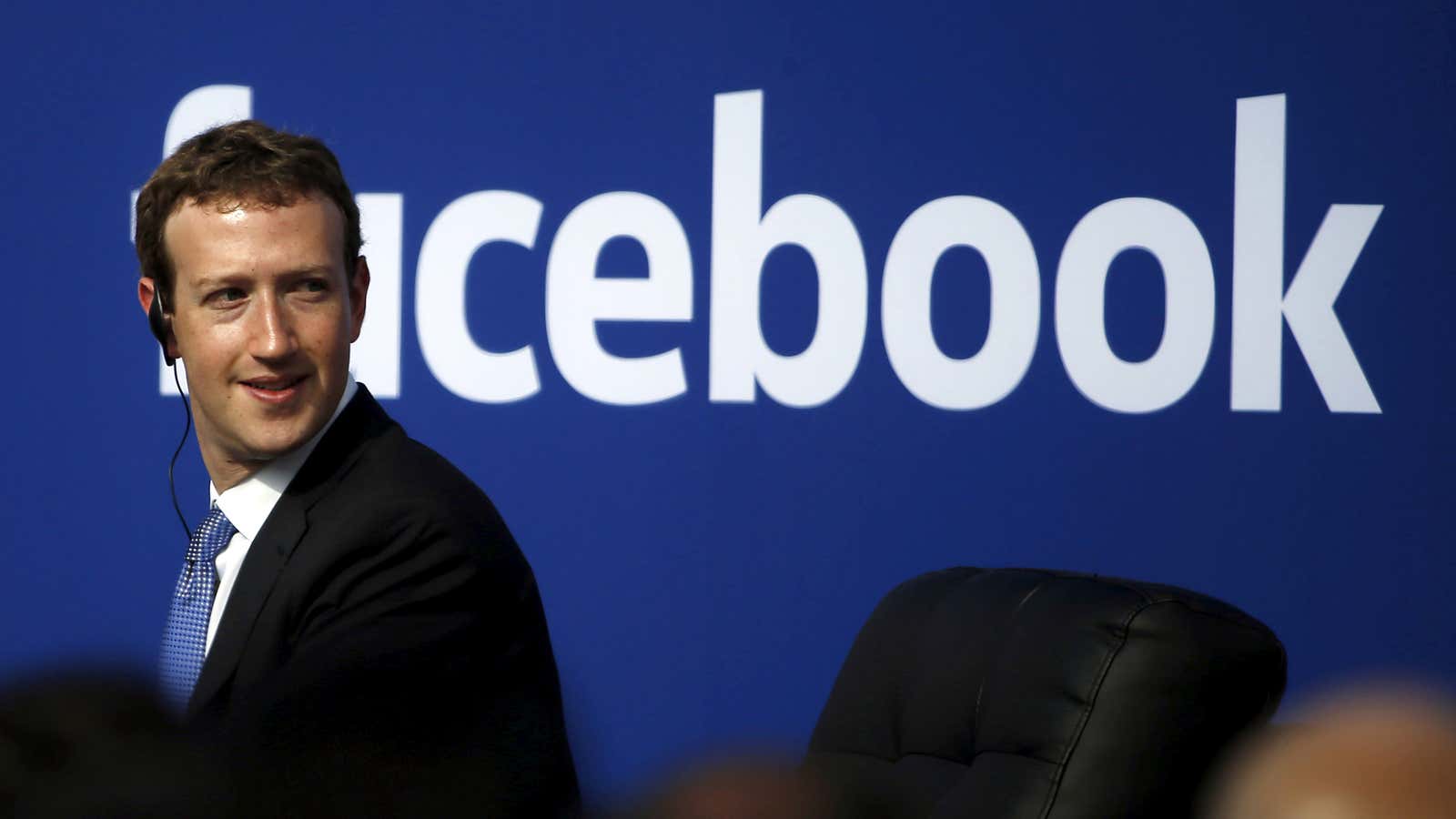Today, Facebook announced that it’s launching Facebook Snapchat. Sorry—I mean Facebook Camera.
A function of the social network’s main app, Camera allows users to post photos and short videos (replete with filters and silly drawings) that appear at the top of their connections’ newsfeeds, and disappear after 24 hours.
If that sounds familiar, it’s because Facebook introduced something similar for Facebook Messenger, called Messenger Day, in March; for WhatsApp, called Status, in February; and for Instagram, called Stories, back in August. And if those sound familiar, it’s because they’re all rip-offs of one of the main functions of another social network, Snapchat, which Facebook failed to purchase for $3 billion in 2013.
In fact, arguably all of Facebook’s last five product announcements are inspired by ideas from other companies. Here’s a quick rundown:
- Facebook Camera = Snapchat Stories
- Live location in Messenger = Sharing your location in Apple’s Messages app
- Reactions and Mentions in Messenger = Reactions and @-mentions on Slack
- Streaming videogames live = Twitch
- Messenger Day = Snapchat Stories
Over the past decade, Facebook has emerged as one of the most-used social networks in the world—it’s currently closing in on 2 billion monthly users—and an online advertising powerhouse bested only by Google. Despite criticism around the proliferation of fake news stories, and reporting errors in its advertising metrics, Facebook’s business continues to boom. The company generated nearly $9 billion in revenue last quarter, up from just under $6 billion the same quarter a year earlier.
And yet with all this success, it’s not entirely clear what Facebook is doing, other than copying good ideas from its competitors and other software companies.
That strategy does seem to be working for the social network, at least for now. But it will be interesting to see whether Facebook’s actual innovations, such as virtual reality with Oculus, or solar-powered, internet-beaming drones, will amount to more than distractions. (Google parent Alphabet is in a similar predicament. Its core Google advertising business still generates 99% of revenue; side projects aimed at shaping the future are just a money pit.)
Nor can Facebook’s competitors do much to stop it. In an interview with Wired about Facebook’s Snapchat ripoffs, University of Pennsylvania law professor R. Polk Wagner said that “because the implementation/interfaces are slightly different, copyright doesn’t provide any protection. This is an area where IP laws don’t prevent the copying of another’s features or innovations.”
So if you notice an interface, interaction, or fun idea on another piece of software in the next few months, don’t worry—it’s probably coming soon to Facebook.
